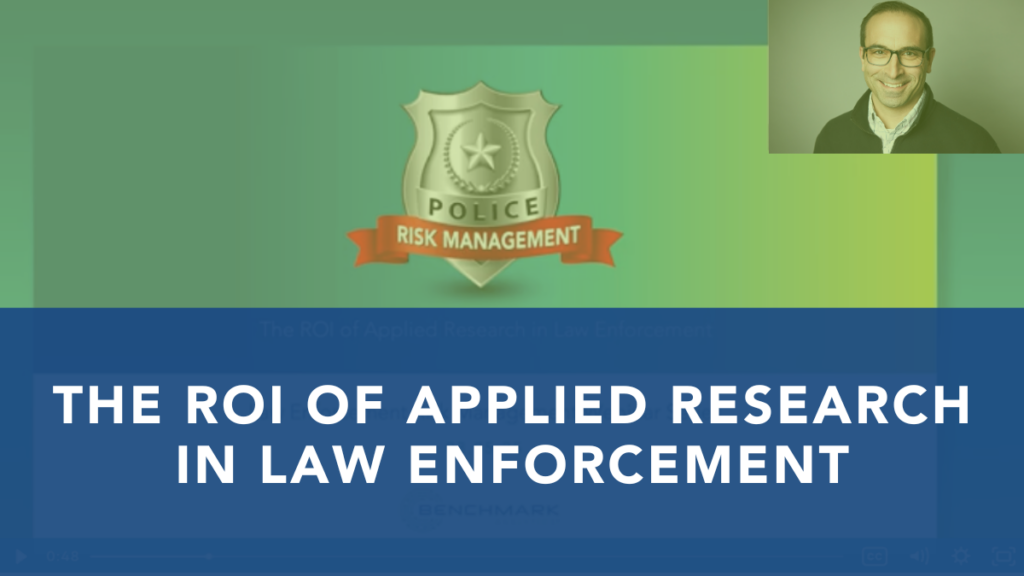Reform and the Expanding Role of State POST Organizations
Posted
June 28, 2021
Share:
In our previous article we examined the brisk pace in the passage of new state-level reform legislation and how it’s impacting law enforcement agencies. Often driven by high-profile law enforcement incidents, these new mandates frequently result in agencies updating their training, certification, and data-gathering capabilities. At the intersection of these new laws and the agencies they impact are POST organizations.
What are state POST organizations?
Police Officer Standards and Training (POST) organizations are tasked with implementing elements of new legislation, especially as it relates to tracking data involving training and certification of officers based on these new requirements. POSTs operate at the state level, administering training and officer certification. These organizations are not exclusively known as POSTs either. For example, in Tennessee the equivalent certifying body is known at the Tennessee Law Enforcement Academy; in Illinois there is the Illinois Law Enforcement Training and Standards Board; and in Texas the Texas Commission on Law Enforcement manages training and certification. Despite the varying nomenclature, the scope of these organizations is roughly the same – to administer and certify the training of officers, provide guidance on best practices to agencies, and, increasingly, to collect large sets of data on police interactions.
 In the last 12 months alone, the National Conference of State Legislatures has tracked approximately 3,000 bills at introduced or passed at the state level related to police reform. Many of these bills recognize a shortfall in centralized data reporting encompassing everything from training certifications to officer interactions in the field. As a result, demands on state POSTs and their data collection capabilities are expanding, requiring them to modernize the ways in which they deal with this data.
In the last 12 months alone, the National Conference of State Legislatures has tracked approximately 3,000 bills at introduced or passed at the state level related to police reform. Many of these bills recognize a shortfall in centralized data reporting encompassing everything from training certifications to officer interactions in the field. As a result, demands on state POSTs and their data collection capabilities are expanding, requiring them to modernize the ways in which they deal with this data.
On the national level, The International Association of Directors of Law Enforcement Standards and Training (IADLEST) is an organization of POST directors and leaders in law enforcement training from all 50 states. IADLEST does not govern training standards, however, they do certify courses through the National Certification Program which ensures coursework is accepted by most state POSTs and is transferrable if an officer joins a new agency. They also maintain several resource databases like the National Law Enforcement Academy Recourse Network, a center for training materials, best practices, and discussion among public safety trainers and officials.
New State Legislation and POSTs
Many of these new laws seek to standardize certification and training at the state, rather than local level. How POST organizations meet the challenge of new statewide requirements is going to be a key factor in determining the overall success of new law enforcement legislation. Here is a look at several prominent examples of the role state POSTs will play in enacting new laws.
- Beginning in 2022, Colorado POST will, among other things, create and maintain a statewide database of information related to an officer’s “untruthfulness, repeated failure to follow POST training requirements, decertification, or termination for cause”. This new mandate is part of broad news efforts contained in SB20-217, signed into law by Governor Polis. (In 2019 Benchmark Analytics was selected as the provider of record for Colorado POST’s training and certification management system and is responsible for the implementation of a new Learning Management System designed to track the training, employment status, and certification of approximately 40,000 personnel statewide.)
- This year, Utah’s state legislature passed a pair of POST-related bills that became law in May. SB106 mandates that the POST council create statewide minimum use of force policies while SB13 calls on agencies to provide information about certain internal investigations of officers to the state POST. Both bills were constructed to more thoroughly establish statewide standards administered by POST.
- In New Hampshire, Governor Sununu signed an Executive Order on Law Enforcement, Accountability, Community, and Transparency. As a result of this executive order, Benchmark Analytics was selected by the New Hampshire POST to head up a statewide capture of employment, training, and certification data across the state’s more than 200 law enforcement agencies.
- As a part of a larger law enforcement bill signed by Governor Baker, Massachusetts established, for the first time, a statewide POST commission. The nine-member commission will be charged with creating certification standards for officers as well as investigating misconduct allegations.
- SB2 was recently approved by the California state senate, establishing the state’s POST commission as the authority for certifying peace officers. The bill also mandates the creation of a nine-member Peace Officer Standards Accountability Advisory. This board will be responsible for reviewing findings of POST investigations and making recommendations on de-certification. Furthermore, the POST Commission voted in February to add a new four-hour use of force training requirement for officers.
- New training mandates in Missouri, passed into law by the state legislature, were approved by the state’s POST commission. The mandates require that officers complete two separate one-hour classes covering de-escalation techniques and coursework on recognizing implicit bias. These two new hours of instruction are included in the 24 hours of annual training officers must complete on an annual basis. Additionally, the POST commission has established a committee to study pre-employment background checks and to make recommendations on their statewide implementation.
- Signed into law in July of 2020, the Minnesota Police Accountability Act contained several provisions aimed at providing the state POST with the financial resources and leadership needed to enact new legislation. The bill called for the expansion of the POST board to 17 members to be appointed by the governor. The legislation also provided nearly $4 million in funding to POST for the expansion of its data collection efforts, training, and associated operational costs.
With these new resources, the Minnesota POST undertook a comprehensive audit led by IADLEST. The purpose of this audit was to modernize POST business processes, provide data for strategic planning, and to clarify procedures surround training and certification. As a part of these efforts, Minnesota POST partnered with
More data collection, greater uniformity in training, and the monitoring of officer certification status have been, and likely will continue to be, key provisions of law enforcement bills being passed throughout the country. Much of this legislation requires state POSTs to enhance their abilities to not only track both training and officer certification but create new systems and procedures for capturing and reporting data. As more of these bills become laws, POST organizations will likely continue to see their roles grow even further in enacting these changes.
Related Posts
Ready to Experience the Benchmark Difference?
Benchmark Analytics and its powerful suite of solutions can help you turn your agency’s challenges into opportunities. Get in touch with our expert team today.



